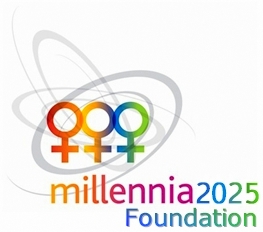 |
Millennia2025 Women and Innovation Foundation, Public Utility Foundation
in Special consultative status with
the United Nations ECOSOC since 2019
Fondation Millennia2025 Femmes et Innovation, Fondation d'utilité publique
en statut consultatif spécial auprès de l'ECOSOC des Nations Unies depuis 2019 |

|
The Destree Institute, NGO official partner of
UNESCO (consultative status) and
in Special consultative status with
the United Nations ECOSOC since 2012
L'Institut Destrée, ONG partenaire officiel de
l'UNESCO (statut de consultation) et
en statut consultatif spécial auprès de l'ECOSOC
des Nations Unies depuis 2012 |
|

|
Millennia2015
International conference,
with the patronage
of the UNESCO
Conférence internationale
Millennia2015,
avec le patronage
de l'UNESCO |